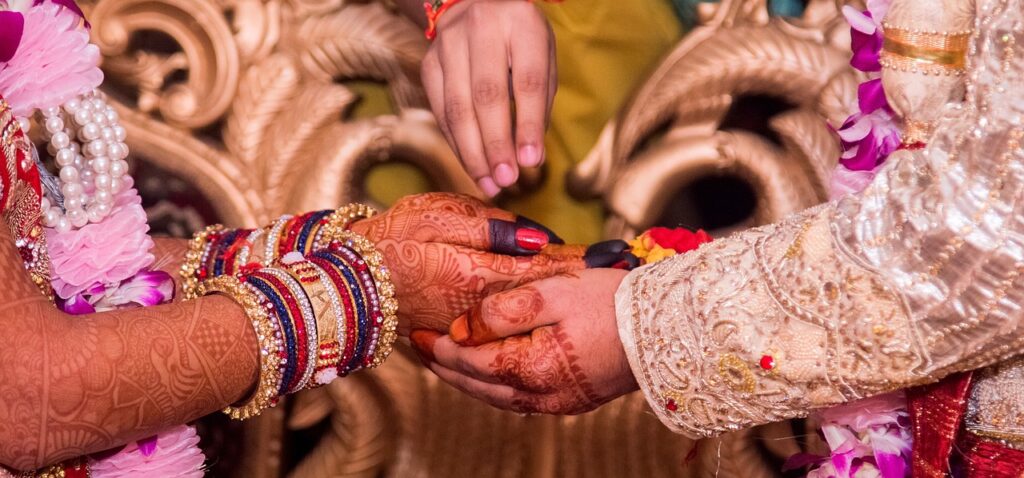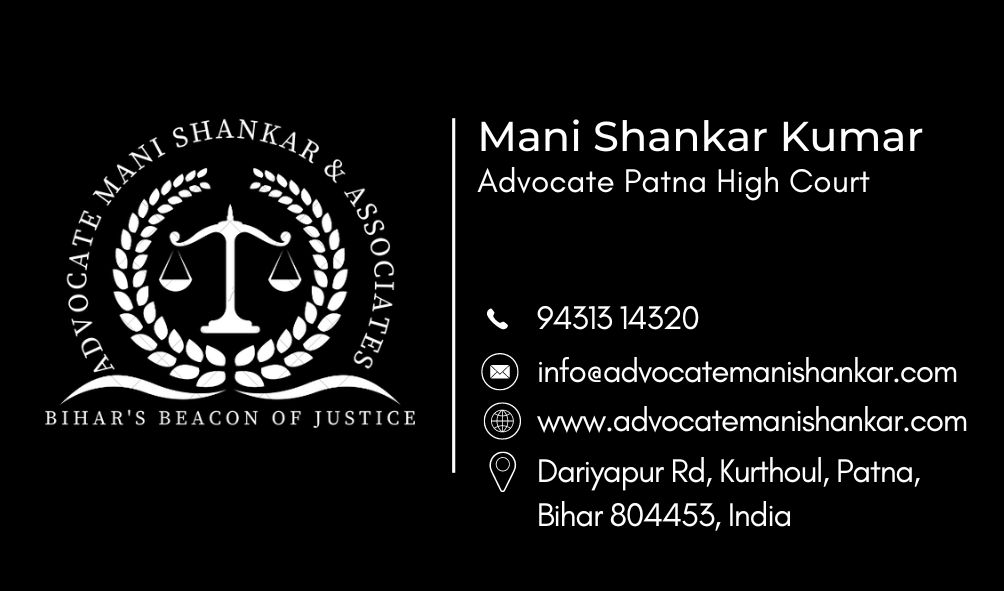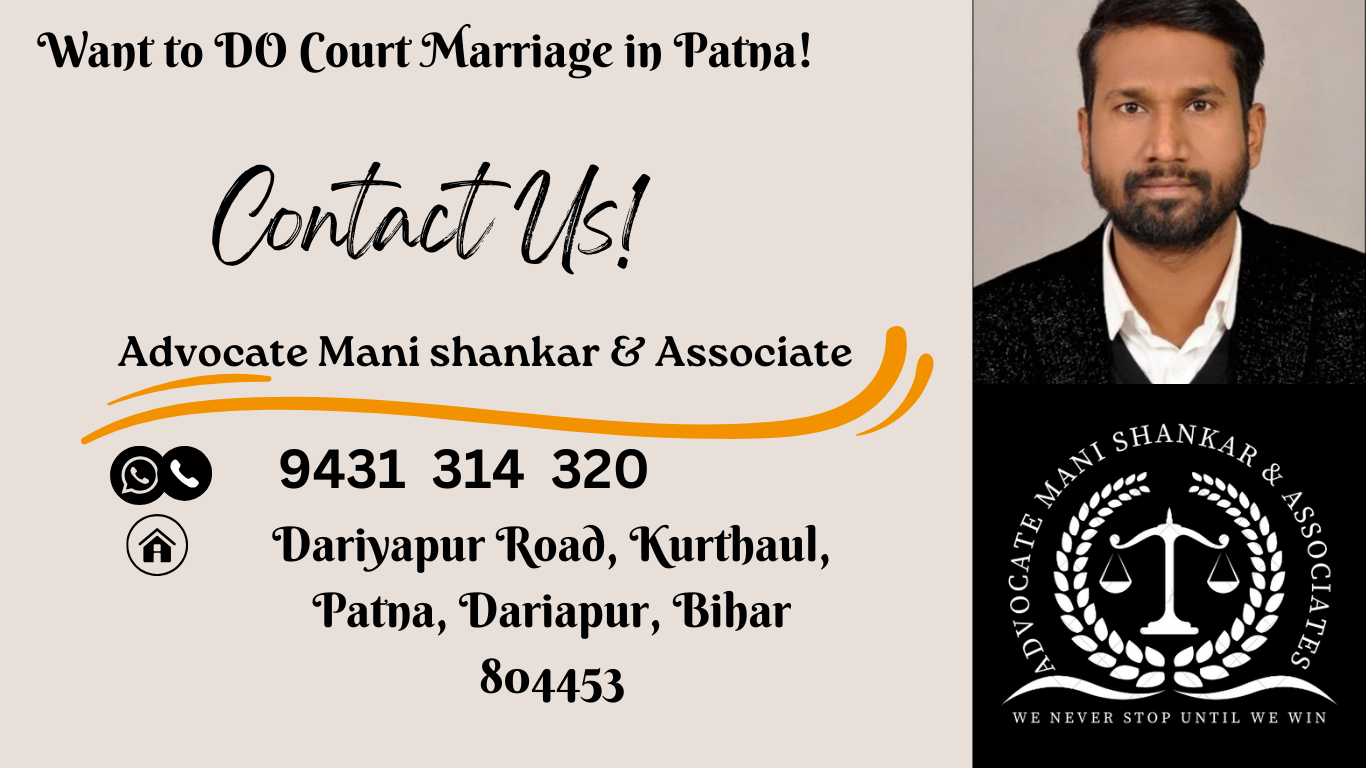Comprehensive Guide to Court Marriage in Patna, Bihar: Process, Types, and Legal Insights
REGISTRED WITH MSME GOVT. OF INDIA & ISO 9001 CERTIFIED LAW FIRM.
Introduction:
Welcome to the ultimate guide on court marriage in Patna, Bihar, brought to you by Advocate Mani Shankar & Associates. In this comprehensive piece, we delve into the intricacies of court marriage, its process, types, and legal nuances. Whether you’re considering tying the knot or seeking legal counsel, this article aims to provide valuable insights to help you navigate through the procedures seamlessly.
Understanding Court Marriage
Court marriage, also referred to as civil marriage or registry marriage, is a legally recognized union between two individuals conducted and registered by a marriage registrar. Unlike traditional ceremonies, court marriages do not involve religious rituals or ceremonies. Instead, they are governed by specific laws and regulations laid down by the government, ensuring the validity and legality of the marriage.
1.1 Legal Framework: In India, the legal framework governing court marriages varies depending on the personal laws applicable to different religious communities. However, court marriages are primarily regulated by two main laws:
Special Marriage Act, 1954: This act provides for the solemnization of marriages between any two individuals, irrespective of their religion, caste, or creed. It allows couples to marry in a civil ceremony before a marriage registrar and requires certain formalities to be fulfilled.
Hindu Marriage Act, 1955: While primarily applicable to Hindu marriages, this act also governs marriages among Buddhists, Jains, and Sikhs. It specifies the conditions for a valid marriage, including eligibility criteria, solemnization procedures, and registration requirements.
1.2 Key Features of Court Marriage:
Legal Validity: Court marriages are legally recognized throughout India, regardless of the couple’s religion, caste, or community. Once registered, the marriage certificate serves as conclusive evidence of the marital status of the parties involved.
Secular Nature: Court marriages are secular in nature and do not involve any religious ceremonies or rituals. They provide a neutral platform for couples from diverse backgrounds to solemnize their union in accordance with the law.
Simplified Procedures: Compared to traditional marriage ceremonies, court marriages typically involve simpler procedures and documentation requirements. This makes them an attractive option for couples seeking a hassle-free and efficient way to legalize their relationship.
Confidentiality: Court marriages offer a degree of privacy and confidentiality to couples, as the proceedings are conducted in the presence of a marriage registrar and witnesses. There is no requirement for elaborate ceremonies or public announcements, allowing couples to maintain discretion if desired.
1.3 Importance of Legal Counsel: While court marriages offer numerous benefits, navigating the legal intricacies involved can be daunting for many individuals. Seeking legal counsel from experienced professionals, such as Advocate Mani Shankar & Associates, can ensure that the process is carried out smoothly and in compliance with applicable laws.

Process of Court Marriage in Patna, Bihar
Court marriages in Patna, Bihar follow a structured process to ensure legality and validity. Let’s delve into each step in detail:
2.1 Eligibility Criteria: Before initiating the court marriage process, it’s crucial to ensure that both parties meet the eligibility criteria mandated by law. These criteria include:
Age Requirement: Both the bride and groom must have attained the legal marriageable age. In India, the legal age for marriage is 18 years for the bride and 21 years for the groom.
Mental Capacity: Both parties must be of sound mind and capable of understanding the consequences of marriage. This ensures that the consent given is genuine and informed.
Prohibited Relationships: The parties should not be within the prohibited degrees of relationship as per the Hindu Marriage Act, 1955. This includes relationships such as siblings, parent-child, and certain other blood relations.
2.2 Documentation: The court marriage process necessitates the submission of specific documents to establish the identity, age, and eligibility of the parties involved. The required documents typically include:
Birth Certificates: Documents proving the date of birth of both the bride and groom.
Identity Proofs: Valid identity proofs such as Aadhar card, passport, or driver’s license are required to establish identity.
Address Proofs: Documents verifying the residential address of both parties, such as utility bills, rental agreements, or voter ID cards.
Passport-sized Photographs: Recent passport-sized photographs of the bride and groom are essential for documentation purposes.
Marriage Declaration Forms: These forms contain details about the parties involved, their consent for marriage, and other relevant information.
2.3 Notice of Intended Marriage: One of the crucial steps in the court marriage process is submitting a notice of intended marriage to the marriage registrar. This notice must be submitted at least 30 days prior to the scheduled marriage date. The notice includes details such as the names, addresses, age, and marital status of the parties involved.
Upon receipt of the notice, the marriage registrar publicly displays it for 30 days to invite objections, if any, to the marriage. If no objections are raised within the stipulated period, the registrar proceeds with the marriage registration process.
2.4 Marriage Registration: On the scheduled date, both parties, along with witnesses, appear before the marriage registrar to solemnize the marriage. The registrar conducts the marriage ceremony in the presence of witnesses and ensures compliance with legal formalities.
Once the ceremony is completed, a marriage certificate is issued by the registrar, validating the marriage. This certificate serves as legal proof of the marriage and is essential for availing various rights and benefits conferred to married couples.
In conclusion, the process of court marriage in Patna, Bihar, involves fulfilling eligibility criteria, submitting required documents, issuing a notice of intended marriage, and solemnizing the marriage before the registrar. Advocate Mani Shankar & Associates offer expert guidance and assistance throughout the process, ensuring a smooth and legally valid union for the parties involved.

Types of Marriage Recognized in India
In India, marriages are solemnized and governed by various personal laws, each catering to specific religious and cultural communities. Understanding the types of marriages recognized in India is crucial, as it determines the legal framework within which the marital union operates. Let’s explore the different types of marriages recognized under Indian law:
- Hindu Marriage Act, 1955: The Hindu Marriage Act governs marriages among Hindus, Buddhists, Jains, and Sikhs. Key features of Hindu marriages include:
- Ceremonial rituals: Hindu marriages typically involve elaborate rituals and customs, varying across regions and communities.
- Legal requirements: The Act outlines essential criteria such as marriageable age, consent, and prohibited relationships.
- Rights and obligations: It defines the rights and responsibilities of spouses, including inheritance, maintenance, and dissolution of marriage.
- Special Marriage Act, 1954: The Special Marriage Act provides a framework for marriages irrespective of religion or faith. It is applicable to individuals of any religion, including Hindus, Muslims, Christians, Sikhs, Buddhists, Jains, and others. Key aspects of the Act include:
- Secular nature: The Act allows couples to marry without regard to their faith or religion, promoting secularism and individual freedom.
- Procedure: Couples intending to marry under this Act must give a notice of their intention to the marriage officer and comply with prescribed formalities.
- Rights and obligations: The Act grants equal rights and privileges to both parties, irrespective of their religious affiliations.
- Muslim Personal Law: Muslim marriages in India are governed by Muslim Personal Law, derived from Islamic scriptures and traditions. Key features of Muslim marriages include:
- Nikah ceremony: Muslim marriages are solemnized through a Nikah ceremony, conducted by a Qazi or religious authority.
- Legal requirements: The marriage contract (Nikahnama) outlines the terms and conditions agreed upon by the parties, including Mehr (dower) and maintenance.
- Dissolution: Muslim Personal Law provides provisions for divorce through methods such as Talaq, Khula, and Mubarat.
- Christian Marriage Act, 1872: Christian marriages in India are regulated by the Christian Marriage Act. Key provisions of the Act include:
- Ceremony: Christian marriages are solemnized in accordance with Christian rituals and customs, often conducted in churches by ordained ministers.
- Legal formalities: The Act requires the presence of witnesses and registration of marriages with the registrar of marriages.
- Dissolution: The Act provides provisions for divorce and annulment, subject to specific grounds and legal procedures.
Each type of marriage recognized in India comes with its own set of rights, obligations, and legal implications. It is essential for couples to understand the applicable laws and procedures before solemnizing their marriage to ensure compliance and protection of their rights.

Legal Implications of Court Marriage
Court marriage holds significant legal implications, offering several advantages to couples seeking a legally recognized union. Understanding these implications is crucial for ensuring the rights and entitlements of the parties involved.
4.1 Legally Valid and Recognized Nationwide: One of the primary advantages of court marriage is its legal validity and recognition throughout the country. Once solemnized in accordance with the applicable laws, a court marriage certificate serves as irrefutable proof of marriage, ensuring legal rights and responsibilities for both parties. This nationwide recognition eliminates the need for separate registrations in different states and provides uniformity in legal status.
4.2 Protection of Rights and Entitlements: Court marriage provides couples with various legal rights and entitlements, including:
- Right to joint property ownership: Married couples have equal rights to jointly own property, assets, and investments, ensuring financial security and stability.
- Spousal support and maintenance: In the event of separation or divorce, spouses are entitled to receive support or maintenance, as per the provisions of relevant laws.
- Inheritance rights: Court marriage establishes legal succession rights, enabling spouses to inherit each other’s property and assets in the absence of a will.
- Insurance and benefits: Spouses are eligible to avail of insurance coverage, retirement benefits, and other financial perks offered by employers or government schemes.
4.3 Simplified Procedures for Inter-Caste and Inter-Religious Marriages: Court marriage offers a simplified and inclusive platform for couples belonging to different castes, religions, or communities. Unlike traditional marriage ceremonies, which may encounter societal or familial resistance, court marriage procedures are devoid of such obstacles. The Special Marriage Act, 1954, facilitates inter-caste and inter-religious marriages, promoting social harmony and individual choice.
4.4 Prevention of Child Marriage and Dowry-Related Issues: Court marriage plays a pivotal role in combating social evils like child marriage and dowry. By mandating a minimum age requirement and stringent documentation procedures, court marriages ensure that both parties enter into matrimony voluntarily and without coercion. Furthermore, the absence of lavish ceremonies and extravagant expenses associated with court marriages reduces the financial burden on families, mitigating the prevalence of dowry demands and related disputes.
4.5 Legal Recourse and Protection: In the unfortunate event of marital discord or disputes, court marriage provides a solid legal framework for resolution. Spouses can seek legal recourse through family courts or civil courts, addressing issues such as divorce, maintenance, custody of children, and property division. The legally binding nature of court marriage ensures that parties are protected under the provisions of relevant marriage laws, safeguarding their interests and rights.
Court marriage offers a host of legal advantages, ranging from nationwide recognition to protection of rights and entitlements. By understanding the legal implications associated with court marriage, couples can make informed decisions and embark on a journey of marital bliss with confidence. Advocate Mani Shankar & Associates are committed to assisting clients in navigating through the legal intricacies of court marriage, ensuring compliance with laws and safeguarding their interests every step of the way.

